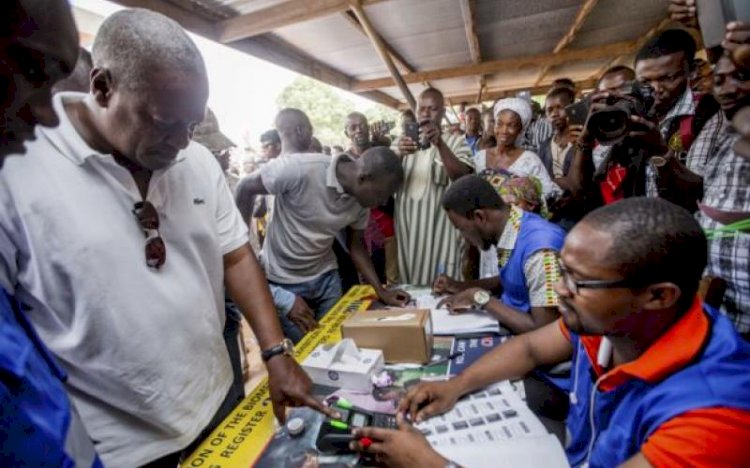Clement Akapame writes: Should elections 2020 be held?
The writer runs commentary on the feasibility of the 2020 General Elections amid the covid-19 pandemic, and gives opinion on whether the exercised should be carried out or not.

My independent view on the debate: Should Elections 2020 be held?
There is no doubt that COVID-19 is asking questions of our democracy that are as novel as they are tricky.
On Thursday April 30 episode of the University of Ghana’s Law in Crisis seminar; as well as all the many reaction pieces that have followed show, opinions differ on the matter, and our republic is richer for the diversity of views that this situation is eliciting. There are good arguments on all sides.
Legal pragmatism within the strictures of the law in my view should prevail over any legal utopian contortions, no matter how creative they get!
Here is what we know: the Constitution does not provide us with a clear solution post Dec 7th if we do not hold elections. In effect, there is no denying that the question whether we should hold an election entails both the taking of a constitutional position; and the making of a political choice. However, here are the facts: a decision to not hold the presidential elections in 2020 will not only lead us to certain constitutional crisis but will also clearly be a political choice that could lead us into political instability.
At the moment, the constitutionally mandated Electoral Commission has NOT indicated that it cannot hold a COVID-PROOF elections. It appears the Commission intends to hold the elections within the public health guidelines.
The Right to Vote and the Administration of the right to vote are two separate but related things! The right to vote must be exercised in a free, fair and I add safe manner. So, if in the view of a voter, the measure put in place by the Electoral Commission does not provide for a free, fair and safe elections, a voter may challenge the commission in Court for it to put in place measures ensure the voter is able to exercise his franchise in a free, fair and safe
In light of this, my answer to the question is three fold:
a. The EC has a constitutional duty to hold elections. So yes, the EC must perform it duties within the limits of the law and the public guidelines! Any indication of that not being possible must come from the Electoral Commission in consultation with all stakeholders, including the political parties. This is where a political and not necessarily a constitutional decision might be taken on how to maintain the governance architecture of the country post Dec 7th.
b. The voter must be satisfied with the measures put in place by the EC. If satisfied, the voter must exercise his civic duty to go out and vote. If not satisfied, the voter can seek redress in Court for better measures to be put in place.
c. While some claim that the public health risk outweighs the right to vote. They are asking the wrong questions and weighing the wrong variables. Does a public health risk outweigh the likelihood of political instability? This is where the balance must be struck. My sense is that the constitutional position we adopt and the political decision we take must both be informed by our past and led by our aspirations as a democratic society. Do we want still to stay a democracy after COVID-19 is over?
So, my simple answer to your question is YES we need to find the best way to build consensus with genuine inclusion of ALL relevant stakeholders on how to organise election 2020 in a free, fair and safe manner and avoid the constitutional cocktails, gymnastics and rigmarole on what should happen post Dec 7 without elections.
Lord let this cup pass us by!
Clement Kojo Akapame, Moderator, UG School of Law Panel on Elections and Pandemics and Lecturer GIMPA Faculty of Law.






































